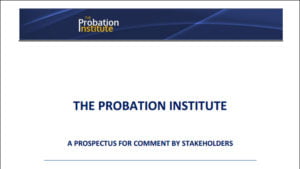
Damning inspection of offender management in prisons
“This lack of progress is of particular concern as it casts doubt about the Prison Service’s capacity to implement the changes required under the Transforming Rehabilitation Strategy designed to reduce reoffending rates, especially for short-term prisoners.”











